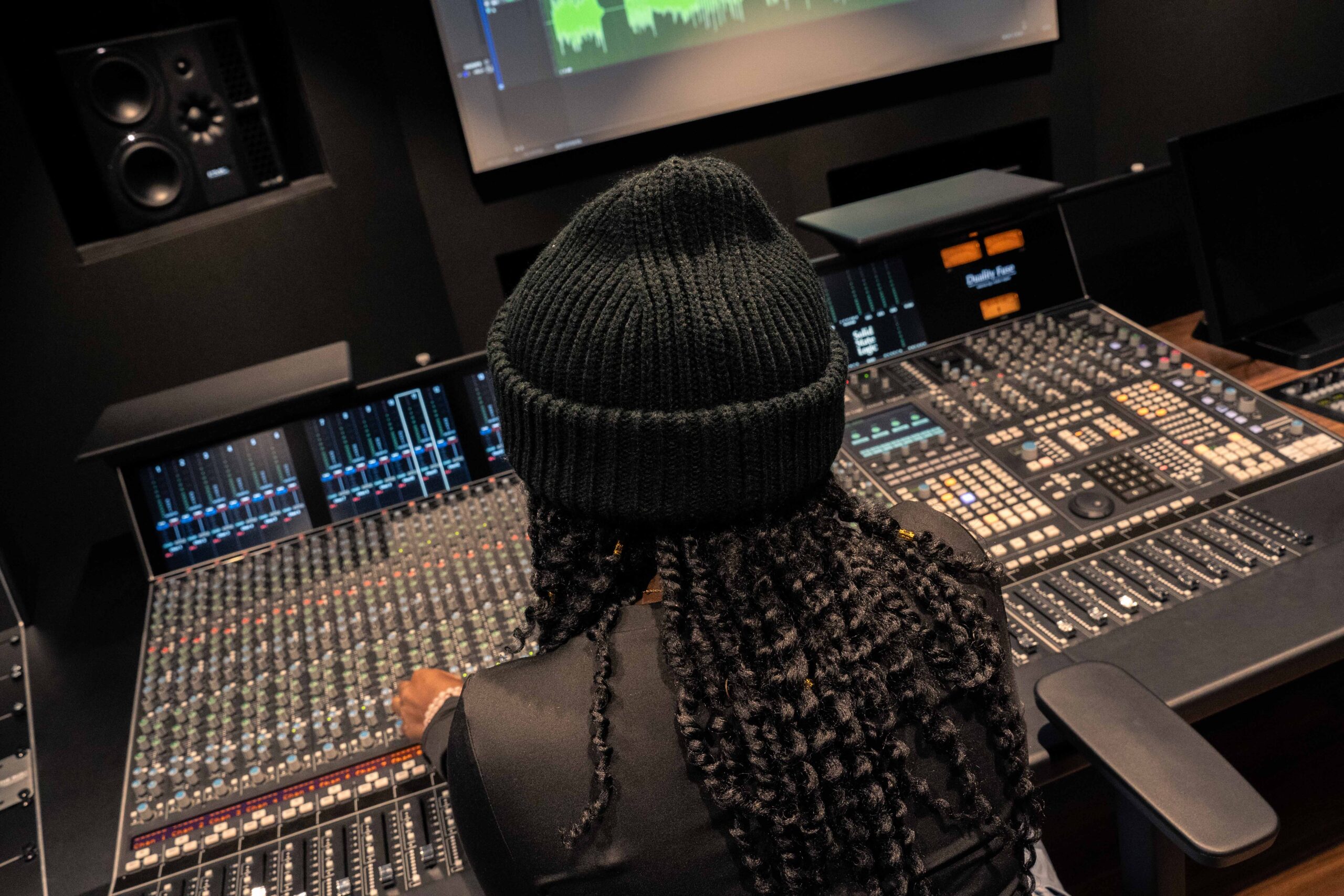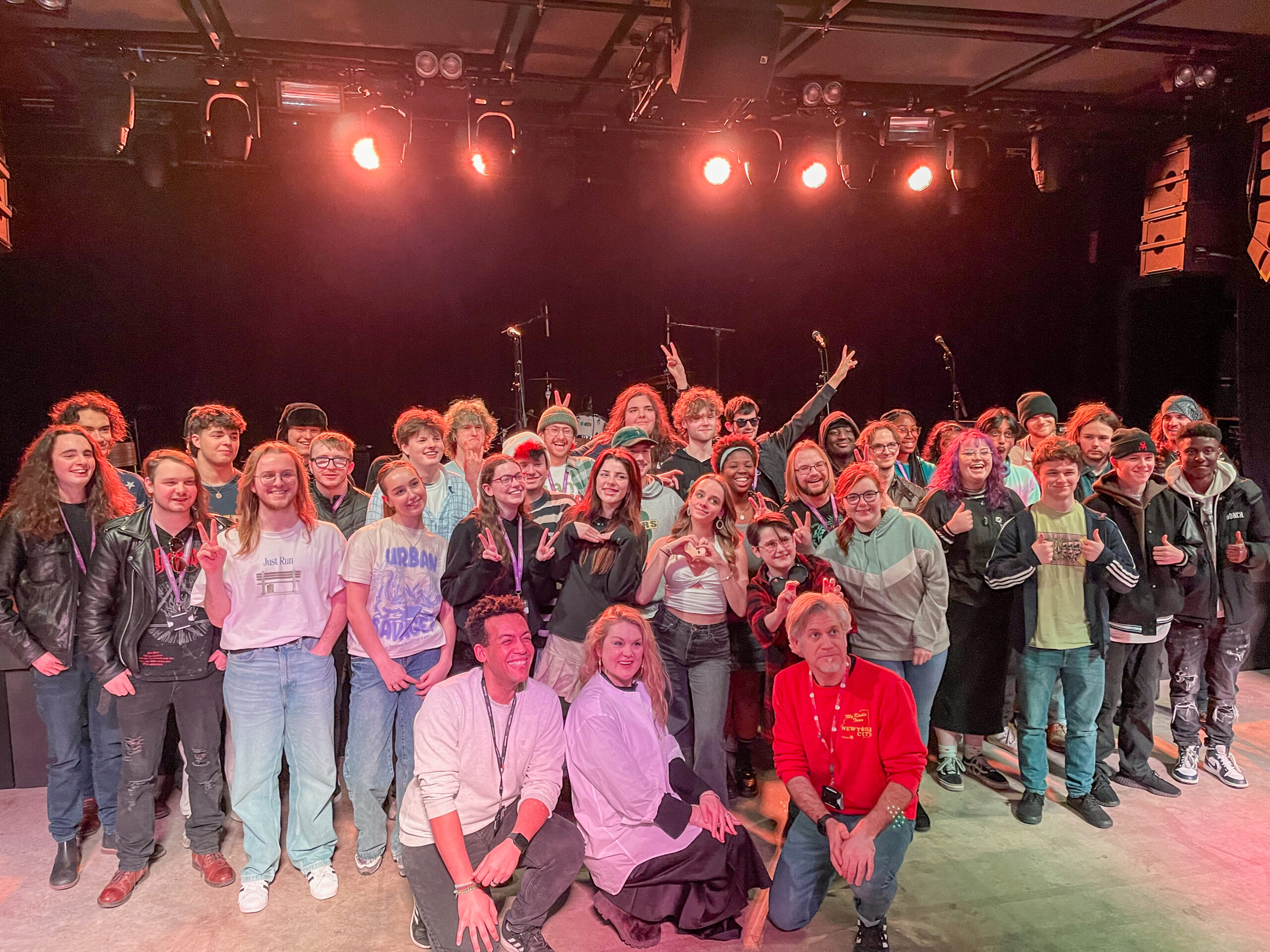You will begin your journey into the studio environment by developing your understanding of the fundamentals of recording. You will learn about large format consoles, signal flow, connections, microphone types, and DAWs to record audio.
You’ll be able to apply these skills whether you’re in a traditional studio or have a small home set up: get this right now, and it will set you up for all of your future studio work.
Studio Practice (20 Credit Points)
In this module, you’ll discover the magic of recording various artists using different styles of recording such as multitracking and overdubbing, in session and in your own time, to form a portfolio of studio work.
DAW Skills (20 Credit Points)
Digital Audio Workstations (DAWs) are the digital canvases you will need to navigate to put down, cultivate, and develop musical ideas throughout your career. In this module, you will learn and apply different DAW techniques to create and arrange music through a series of set tasks, thereby developing a skills portfolio that you can apply throughout your course and career. You will build upon these skills to support your song writing module, generate ideas, and understand their role in a wide range of applications.
Creative Music Technologies 1 (20 Credit Points)
In this module, you will explore the fundamentals of synthesis and sampling, and make a track/tracks entirely from your own self-sourced and generated sounds: a key step into defining your own sounds and world of originality.
Music Composition and Theory (20 Credit Points)
This module will teach you the fundamentals of music theory such as rhythm, harmony, melody, accompaniment and arranging, enabling you to communicate emotions and feelings through your compositions. You’ll demonstrate your understanding of key principles through portfolio tasks and apply them in a completed final composition (or compositions).
Your Industry (20 Credit Points)
You will explore contexts of working in the international world of sound and music and how you might establish a career by exploring the flow of money through the industry and relevant current and emerging trends. You’ll assess your current skill set and discover what you need to do to improve your chances of success on your employable journey.
You’ll choose work like briefs lasting at least 80 hours to enable you to experience working opportunities in a field of interest, then reflect on your learning to set you up for the rest of your course in an employable mind set. Your future starts now!







